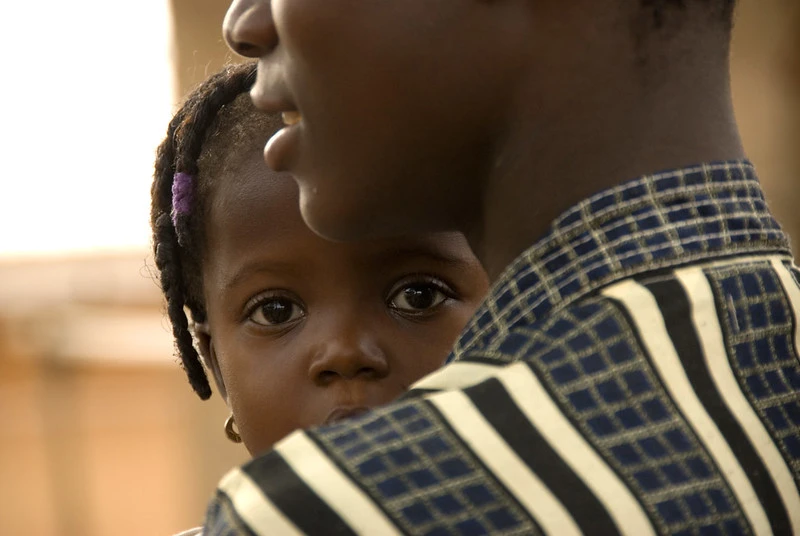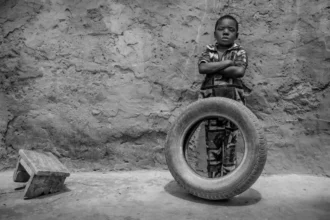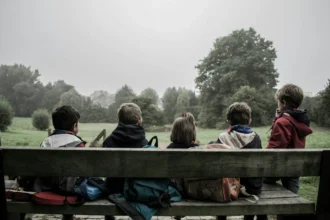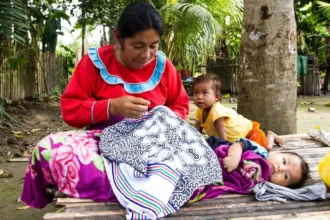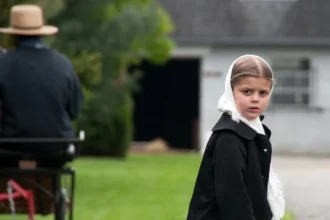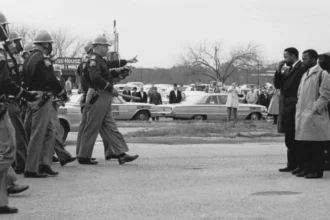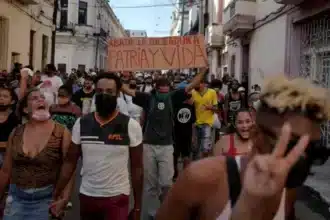The Western Origins of Children’s Rights Discourses
Dominant children’s rights discourses, embedded in key pieces of international law, have long been recognised as being ‘Western’ in orientation. This can largely be attributed to the fact that they emerged within the societal and economic upheavals that characterized Western European and North American societies from the 18th century onwards.
- The Western Origins of Children’s Rights Discourses
- Critiquing Portrayals of Children’s Rights in the Global South
- The Plurality of Childhood Experiences in the South
- Ghana as a Case Study: Exploring Intersections
- The Continuum of Children’s Lived Realities and Intersections with Dominant Rights Principles
- Questioning the Notion of ‘Western’
- Implications for Future Research and Pedagogy
This historical context has been foregrounded in much of the literature on children’s rights, especially with the intention of illuminating the extent to which such dominant discourses, based on their origins, are in sharp contrast to understandings of childhood and child development in societies in the South which have followed different trajectories and hence, have different understandings of what it means to be a child.
Critiquing Portrayals of Children’s Rights in the Global South
While these critiques are valid, questions have emerged about the extent to which such arguments overlook the transformations that started to occur in ‘non-Western’ societies from the same period. These transformations problematise arguments that foreground the inapplicability of, or challenges to, dominant children’s rights principles for contexts in the Global South due to the diversity that exists in children’s lived experiences.
I use, and develop, the concept of a continuum which effectively captures the wide range of realities found in a context such as Ghana.
Therefore, overwhelmingly presenting children’s lived realities in the South as being in sharp contrast to dominant rights discourse leads to a situation whereby the knowledge that is produced about the intersection between dominant children’s rights discourses and the lived realities of children in contexts in the South ends up being partial and one-dimensional with a specific focus on childhoods defined by ‘lacks’. It further results in a determination to overlook the resulting impact of the ongoing interactions between colonialization, urbanization, capitalist forces, and the intensification of global processes.
Hence, while the contributions of studies critiquing dominant rights discourses in the South are invaluable, they are limiting because they do not offer a holistic insight into the various ways these rights discourses intersect with local realities in such contexts. Specifically, they overlook the fact that at the same time as human rights and children’s principles have been evolving over the past 300 or so years so too have many societies in the South or ‘non-West’ – namely, as a result of their own transformations and upheavals which have had implications for the very fabric of these societies.
The Plurality of Childhood Experiences in the South
A more holistic approach to the study of children’s rights in the Global South provides insights into not only the dissonance between the everyday lives of many children on one hand and dominant children’s rights discourses on the other, but it also illuminates the existence of other attitudes and lived experiences relating to children’s lives.
Such attitudes and experiences indicate that amongst sections of a given population there exists a level of openness and, even an enthusiasm for, dominant rights discourses as articulated in international laws such as the Convention on the Rights of the Child.
This recognition of intra-societal diversity in childhood lived experiences in the South implies that there is a need for a dual approach or holistic approach that acknowledges both dissonance and synergy in the realisation of global children’s rights principles as the lived experiences of many children are much more mixed.
Ghana as a Case Study: Exploring Intersections
It is this need to outline the plurality of childhood experiences in relation to dominant children’s rights in contexts in the South that this book seeks to address. Specifically, it seeks to explore how global children’s rights principles intersect with the lived realities of a range of children’s lives in Ghana, which was the first country to ratify the Convention in February 1990, three months after its adoption.
In exploring these intersections, the volume seeks to go beyond a focus on the inapplicability of, or challenges to, dominant children’s rights norms in this context. Rather, it aims to highlight that as a result of the plurality of childhoods and childhood experiences, primarily as a result of the differential social positioning of groups attributable to historical as well as more recent social changes, different lived experiences of, and attitudes to, global children’s rights norms exist within this context.
In problematising the utility of the term ‘the West’ I draw on both Ghana, the focus of the book, and Latin America.
This plurality of childhood experiences and its implications for the attitudes and lived experiences of different groups of children is outlined in Chapters 6 and 7. Chapter 6, for instance, outlines the plural nature of Ghanaian society with a focus on marriage practices and kinship ties before turning its attention to the implications for constructions of childhood and children’s lived experiences.
To illustrate its significance for children’s lives, it hones in on the issue of puberty rites which have historically marked the transition from childhood to adult male or female status for many ethnic groups in the country. In particular, focusing on the specific puberty rites of Bragoro and dipo, it argues that while these rites persist, especially in the case of dipo, in the past 100 years or so there have emerged families from the ethnic groups with whom these rites are associated who refuse to allow their daughters to participate in such rituals due to new values they have come to imbibe.
Key amongst these values are Christianity and formal education which have influenced families in the way they think about transitions to adulthood and the new markers that they feel are better placed to assess this transition such as the completion of secondary education.
Consequently, this has created a plurality of childhood transitions even in quite small communities. This illustrates that within this context no singular interaction between children’s lived realities and dominant children’s rights norms can exist. This is evidenced by the fact that while some families continue to adhere to traditional teachings and persevere in the practice of dipo, in particular, others reject the practice and draw on new milestones relating to formal education to measure when their child is now an adult and ready for marriage.
In addition to these two groups there can also be found another group who seek to find a way to combine new ideas influenced by Christianity and formal education with values that have been transmitted for generations to produce a hybridized outcome by modifying puberty rite rituals in one way or another.
The Continuum of Children’s Lived Realities and Intersections with Dominant Rights Principles
As a result of this diversity of childhood experiences, especially in relation to interactions with dominant rights discourses, the volume argues that there is a need to move away from the disproportionate focus on children whose lives are at odds with dominant children’s rights and adopt a more holistic approach to the study of childhoods and their intersections with global children’s rights norms.
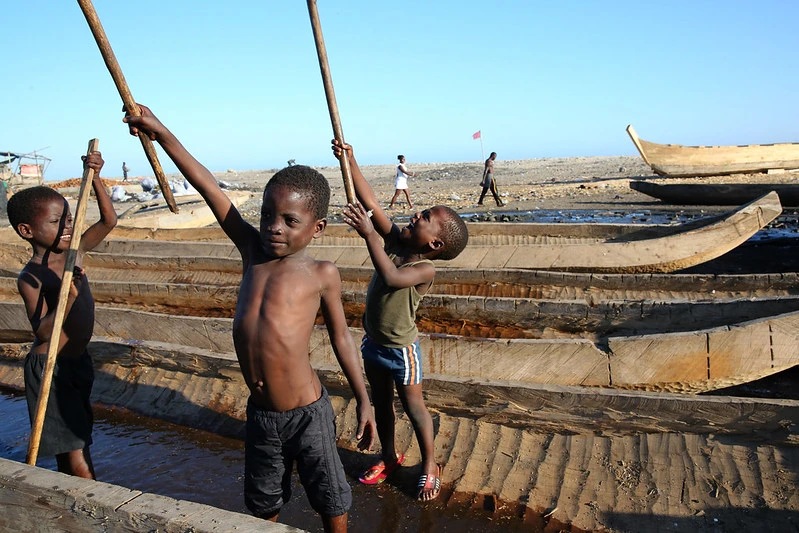
In this way it will be possible to focus on both realities which are completely at odds with dominant children’s rights norms, which are valid and deserve interrogation, and also the lived experiences of those children and their families whose lives may hold some degree of synergy with dominant children’s rights principles.
In expanding the holistic approach I call for in the book, I use, and develop, the concept of a continuum which effectively captures the wide range of realities found in a context such as Ghana. While at one end of the continuum are social realities that are in complete contrast to human rights or children’s rights norms as defined by global institutions and their values, at the other end can be identified lived experiences that correspond closely with such principles. And in the middle are a range of lived experiences of, and attitudes towards, global children’s rights principles and discourses which exist along the continuum with varying levels of intensity.
Questioning the Notion of ‘Western’
This variability in lived experiences and its implications for how an individual is socially located to dominant children’s rights discourse has to be situated against a backdrop which acknowledges not only the persistence of traditional and cultural norms across generations, but also social and economic changes that have affected Ghanaian society over the last 540 years or so.
These social changes, especially those linked to historical developments that continue to have ramifications for the lifestyle, attitudes, and experiences of many within the country, lead me to problematise, in Chapter 8, the notion of what is ‘Western’, a concept often used as part of accounts documenting the origins of global rights discourses.
Further, the ‘Western-bias’ of these discourses, linked to their origins, proceeds to form a key part of analyses of the challenges facing global children’s rights norms, especially in relation to Southern or ‘non-Western’ contexts. In the volume I take issue with the terms ‘Western’ and ‘non-Western’ and strive to illustrate the ways that the legacy of entanglements between so-called ‘non-Western’ contexts and the ‘West’ continue to shape social structures and relationships in many ‘non-Western’ contexts today (and indeed, in the ‘West’ too).
In problematising the utility of the term ‘the West’ I draw on both Ghana, the focus of the book, and Latin America, a region that is geographically located in the Western hemisphere and which witnessed huge numbers of European migration, especially in the 19th century and early decades of the 20th century , but yet has, hitherto, not been included in the definition of what is considered to be ‘the West’ or ‘Western’.
The significance of this argument that I make here is to show that for some groups of people in so called ‘non-Western’ contexts ‘Western’ ideas and values in circulation are not being imposed on their lives and disrupting their value systems. This is largely because their lives, and those of previous generations in their family, have long been influenced by these values and hence, their worldview may share some affinity with so-called ‘Western’ concepts such as human or children’s rights.
Thus, given the extent to which the term ‘Western’ has travelled and become embedded in societies whose characteristics do not explicitly align with the original definition of what it means to be ‘the West’ or ‘Western’, to argue that dominant children’s rights reflect a bias for ‘Western’ values and historical developments seems to be somewhat of a moot point. This is due to the fact that by the time arguments started being made about the ‘Western bias’ of children’s rights norms, or, indeed, human rights principles more generally, the horse had, in effect, already bolted from the stable because the concept of ‘the West’ had already become deterritorialised from its cartographical location.
Implications for Future Research and Pedagogy
While the need to outline a more holistic approach to the study of Southern childhoods and their intersections with global rights discourses was my primary motivation for this book, I also have to acknowledge that I was also driven by a consideration of my students in the universities I have worked in which have all been in the UK. Many of these students I have taught over the last 16 years have come to the topic of Southern childhoods with little knowledge of the Global South other than what they have heard in school or in the media.
The volume seeks to go beyond a focus on the inapplicability of, or challenges to, dominant children’s rights norms by exploring alternative approaches to children’s rights.
Hence, a continued focus on childhoods defined by lacks and the challenges such childhoods face in relation to children’s rights norms do little to develop a balanced understanding about Southern childhoods amongst my students. I, therefore, hoped that this book, and its call for a more holistic approach to the study of Southern childhoods, will result in the production of more academic literature that explores the lived experiences of not only children whose lives are clearly in stark contrast to dominant children’s rights norms, but also those whose lives illuminate some level of synergy with such norms to varying levels of intensity.
The production of such a body of literature will be hugely beneficial to students approaching the study of parts of the world about which they know little as it will enable them to move beyond one-dimensional understandings of children’s lives and their interactions with children’s rights. Additionally, it will challenge any unhelpful stereotypes that students may be carrying with them into university. Further, it expose them to the plurality of lifestyles and experiences that can be found in the Global South which they should understand as being largely as a result of history and more recent social changes that have ramifications that continue to endure.


